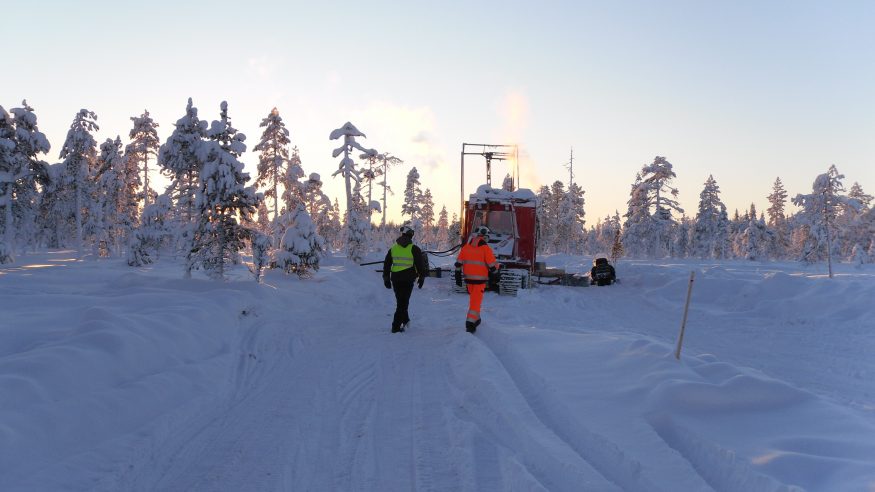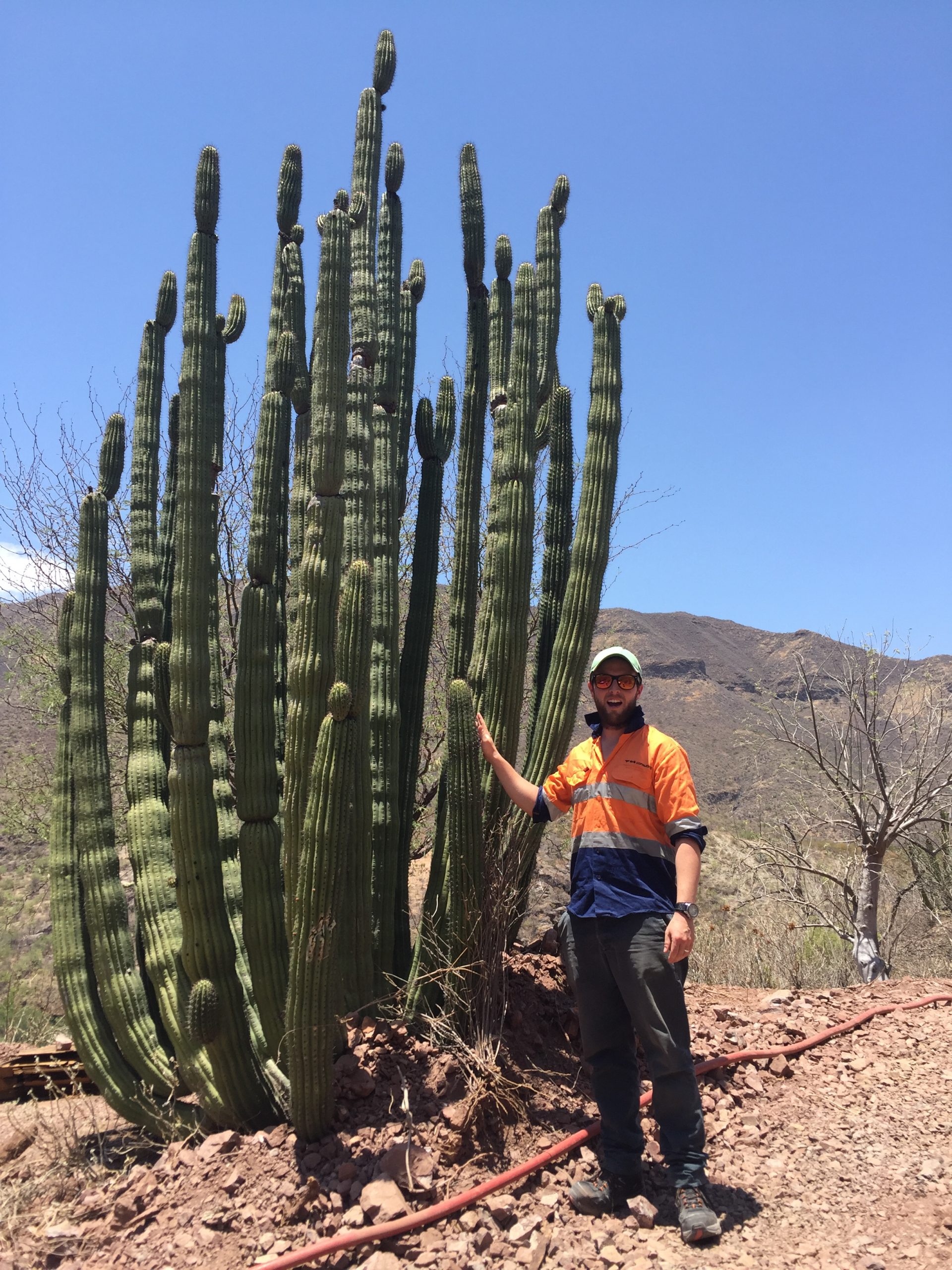Ben digs his career in responsible mining – For Alumni, By Alumni
5 February 2025
Ben Lepley (MESci 2008) is a geoscientist and environmental, social, and governance specialist in the mining and minerals industry. He also dabbles in education, works to improve public knowledge of responsible mining, and aims to inspire recruits who want to tackle planetary challenges. Here, Ben debunks some mining myths and makes the case for joining the industry, which calls for a wide range of skillsets.
“Do we still do mining?!”
This question was asked to me by a middle-aged businessman when travelling recently. He was astonished that the world still mined – this was an ancient tradition only really done by orcs and dwarves in Middle-earth, wasn’t it?! It made me think about how disconnected many western countries have become from the origins of everyday items. Do Mr Bezos and Mr Musk just create products from an infinite supply of materials that appear as and when required?
In fact, we mine (or quarry) on a staggering level today. Far and away, the most mined materials are sand, gravel, and clay for construction, as well as other industrial minerals such as limestone (mainly for cement), with a combined total of approximately 50 billion tonnes per annum. Coal is still also mined in huge quantities, with all metals accounting for approximately three billion tonnes per annum (the majority being iron ore for steel production).

And this is still not quite enough. We are starting to recycle at much higher rates than ever before, which helps to reduce the need for primary mining. But we simply haven’t mined enough of most materials to meet society’s current demands, particularly with respect to new and emerging technologies. Metals such as lithium, rare earth elements, and cobalt have never been required on the scale used today in batteries, electric vehicles, and other renewable technology.
The industry is also heading towards a talent crisis in the coming years. We don’t have enough young people studying relevant subjects or interested in a career in mining, and so we face a skills shortage. As for myself, I studied Geology at Cardiff, got a job with a mining consultancy based in the city, and am still here 16 years later. I now work in the environmental, social, and governance (ESG) space (aka sustainability) and attempt to help mining and mineral exploration companies mine responsibly. And I also want to raise awareness of this industry as a potential path for people with a variety of skillsets.
I understand the viewpoint of many that mining is destructive, dirty, and counterproductive to sustainable development, and therefore not the favourite choice of career path. A quick search online does not a pretty read make; you will quickly learn about the dark side of the industry – child labour and human rights abuses, environmental disasters, national protests, and rainforest destruction to name a few. I am not here to defend any of that (and these issues sadly do exist in some parts of the world), but the mining industry is not all like that.

As you might have gathered from the statistics above, there are an enormous number of mines, and their reputation comes from the poorest performers. A many number of mines and quarries do operate in responsible ways, through protection of the surrounding environment and putting huge amounts of effort into community and social issues. Significant technological advances have also helped to reduce or avoid negative impacts – these include electrification of vehicles and equipment, dust and gas filtration equipment, and water treatment processes. The way we mine is evolving too, with companies investigating bioleaching (using bacteria to dissolve metals instead of chemicals) and direct extraction of metals from groundwater.
So, what kind of people do we need to join the mining industry? The answer is a staggering variety. Some of the most obvious examples are the geologists (rock lickers), who look for new deposits and help mines to keep digging the right stuff. We also need a variety of engineers, including those who design the mining operations, as well as chemical engineers, electrical engineers, and geotechnical engineers. And we need chemists to understand how to get the valuable bits out of the rocks, and environmental specialists who understand how to protect ecosystems. We need social scientists to understand how a mine affects local communities and develop socio-economic plans. We need lawyers, communications experts, data scientists, IT specialists, health and safety experts, economists, construction staff, security experts, transport planners, landscape architects, drivers, mechanics, surveyors… you get the idea.
If you’re interested in learning more about the mining industry, you can follow my updates on LinkedIn here.
Ready to connect with fellow Cardiff alumni like Ben? Don’t forget to join the official alumni LinkedIn group to expand your network, ask questions, and keep up to date with career opportunities.
- January 2026
- November 2025
- September 2025
- July 2025
- June 2025
- May 2025
- April 2025
- March 2025
- February 2025
- January 2025
- October 2024
- September 2024
- August 2024
- July 2024
- June 2024
- May 2024
- April 2024
- March 2024
- February 2024
- January 2024
- December 2023
- November 2023
- October 2023
- September 2023
- August 2023
- July 2023
- June 2023
- May 2023
- April 2023
- March 2023
- February 2023
- January 2023
- November 2022
- October 2022
- September 2022
- August 2022
- July 2022
- June 2022
- May 2022
- April 2022
- March 2022
- February 2022
- January 2022
- December 2021
- November 2021
- October 2021
- September 2021
- August 2021
- July 2021
- June 2021
- May 2021
- April 2021
- March 2021
- February 2021
- January 2021
- December 2020
- November 2020
- October 2020
- September 2020
- August 2020
- July 2020
- June 2020
- May 2020
- April 2020
- March 2020
- January 2020
- December 2019
- November 2019
- October 2019
- September 2019
- August 2019
- July 2019
- May 2019
- April 2019
- March 2019
- February 2019
- January 2019
- December 2018
- November 2018
- October 2018
- September 2018
- August 2018
- July 2018
- June 2018
- May 2018
- April 2018
- March 2018
- February 2018
- December 2017
- November 2017
- October 2017
- September 2017
- August 2017
- July 2017
- June 2017
- May 2017
- April 2017
- March 2017
- February 2017
- January 2017
- November 2016
- October 2016
- September 2016
- July 2016
- June 2016
- May 2016
- April 2016
- March 2016
- February 2016
- January 2016
- December 2015
- November 2015
- October 2015
- September 2015
- August 2015
- January 2015
- December 2014
- November 2014
- September 2014
- August 2014
- May 2014